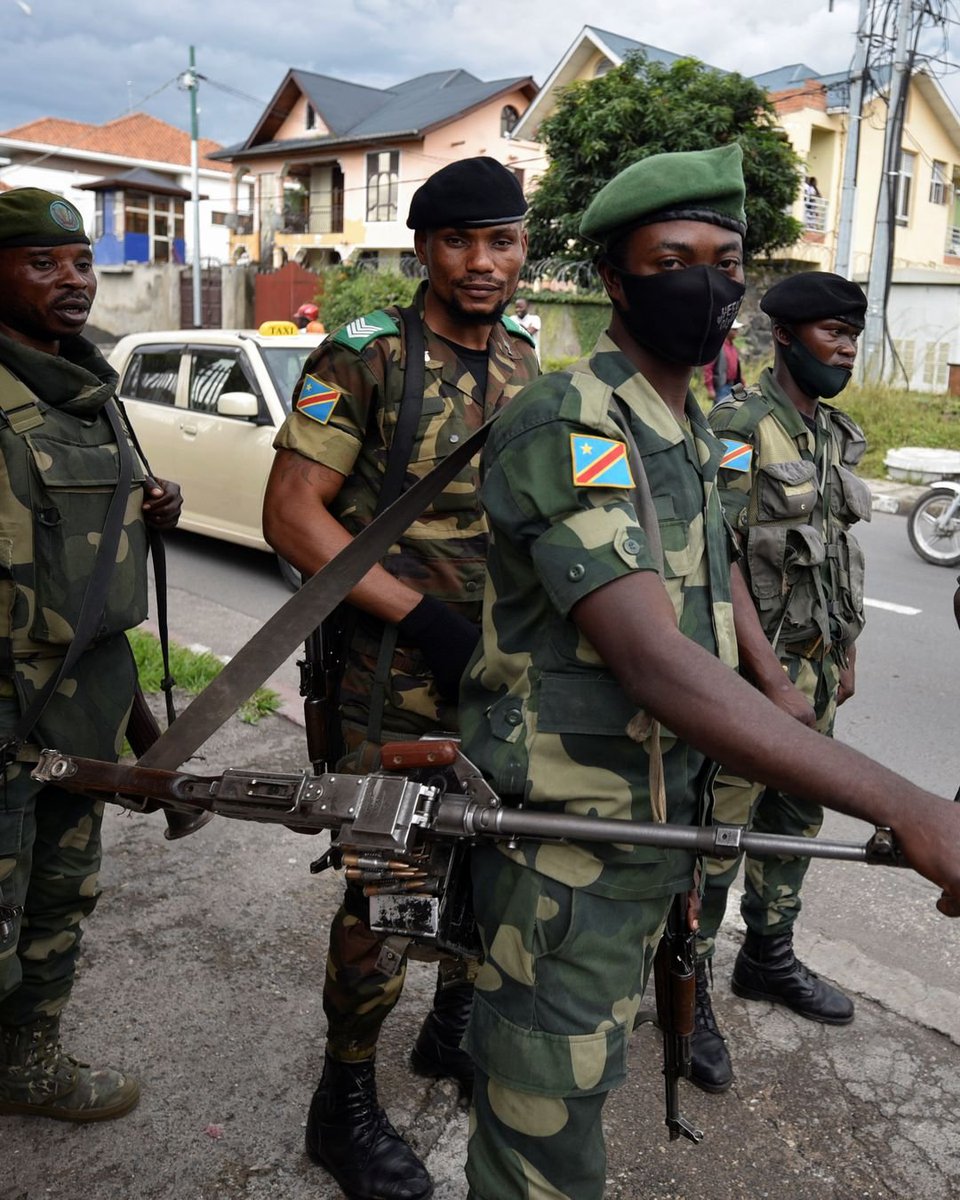1) DRC's Bemba goes arms shopping; can Tshisekedi’s army use them?
thegreatlakeseye.com/post?s=DRC%27s…
@PatrickMuyaya @radiookapi @bembajp @The_EastAfrican @Presidence_RDC @sugiramireille @kivunews24 @MweneGahaya @_TuyisengeEpiph @MartinFayulu @MuzitoAdolphe
By: @JosephineKalemb twitter.com/i/web/status/1…
thegreatlakeseye.com/post?s=DRC%27s…
@PatrickMuyaya @radiookapi @bembajp @The_EastAfrican @Presidence_RDC @sugiramireille @kivunews24 @MweneGahaya @_TuyisengeEpiph @MartinFayulu @MuzitoAdolphe
By: @JosephineKalemb twitter.com/i/web/status/1…

2) Less than two months after his appointment, the Deputy Prime Minister and Defense Minister of the DRC #Bemba, is on an arms shopping spree in Asia. On May 11, he traveled to Indonesia where he met the country's ammunition producer and signed military cooperation agreements. 



3) According to the agreements, DRC plans to purchase Indonesian-made defense equipment and enroll Congolese cadets at the Indonesian military academy, among others. 



4) In Dec 22, the @UN Security Council lifted a nearly two decades old arms embargo on DRC. Since then, the Congolese government has been purchasing weapons from across the world, as was the case when former Defense Minister, Gilbert Kabanda, visited Russia to purchase weapons.
5) In March 2022, the M23 rebellion launched a new offensive in North Kivu province in eastern DRC. The renewed activity of the rebel group, which had been largely dormant for about 10 years, led to a strong demand in Kinshasa for weapons.
6) The Tshisekedi government later approved an ambitious military spending plan, worth $3.5 billion from 2022 to 2025. According to reports, Kinshasa purchased three Sukhoi-25 fighter jets, several multi-role combat aircrafts from China, among others.
7) But with all these acquired weapons, and more to come, why has the Congolese national army, FARDC, failed to fight the more than 130 foreign and local armed groups that are killing, looting and destroying the country?
8) There’s a broad consensus among analysts that what is needed is primarily a structural reform of the Congolese army to address its weaknesses; buying more weapons will not solve its problems.
9) With over 13,000 active personnel, FARDC’s capability is dubious. Congolese army units have instead resorted to a discrediting and damaging practice of using abusive armed groups such as the genocidal FDLR militia, Nyatura, APCLS, and Mai Mai, as their proxies.
10) A @hrw report published in October 2022, pined FADRC on supplying arms and ammunitions to the FDLR terror group that is responsible for the 1994 genocide against the Tutsi in Rwanda.
11) The newly purchased arms by Kinshasa, will only be distributed to these terrorist groups all over again, wreaking more chaos instead of serving any purpose in bringing peace in DRC.
12) Kinshasa needs to understand that a big number of soldiers, purchasing expensive war equipment will add no value. It is not the numbers that win wars but the commander's brain; something that is lacking in the country’s system.
13) Congolese soldiers have complained of poor welfare. On Oct 31, an anonymous FARDC Colonel wrote an open letter to President Tshisekedi, showing how their army’s failures resulted from entrusting command to ‘mafia vultures and untrained’ officers.
14) With poor training, low pay, a critical lack of esprit de corps, patriotism, and a culture of corruption and politicization, how can anyone expect the DRC army to perform better, even with the most sophisticated weapons on earth?
15) Kinshasa should walk the diplomacy path before it’s too late. War, with such a weak army, is not DRC’s advantage.
END
END
• • •
Missing some Tweet in this thread? You can try to
force a refresh

 Read on Twitter
Read on Twitter











